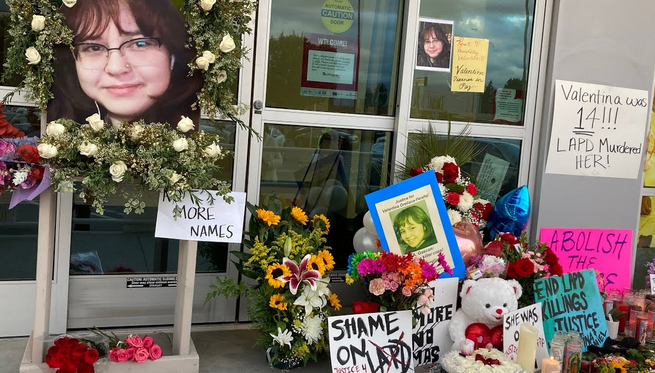Who will spearhead the quest for continental African unity without which the continent cannot enjoy economies of scale and enhance its bargaining power with the industrialized economies?
[Publisher’s Commentary]
In the 1960s, the biggest political names garnering major media attention in Africa included Kwame Nkrumah, Julius K. Nyerere, Patrice Lumumba, Ahmed Sekou Toure, Abdel Nasser, Ben Bella, Jomo Kenyatta, A. Milton Obote, Kenneth Kaunda, Nnamdi Azikiwe, Chief Awolowo,Tafawa Balewa and others.
These were the heady days shortly after national independence.
The big question of the day was what path these big players would choose towards national economic development; national liberation of the white-ruled Southern African countries; Pan-African unity for a continental African state; and, what economic and political systems to pursue.
Nkrumah advocated immediate unity of the newly-independent African states with a continental government and army; he argued that as the years went by and the new nation-states consolidated identities it would become increasingly difficult with each passing year to attain African unity.
He shared a philosophy of African socialism as the means of economic development, with leaders such as Nyerere. However, the two big players differed on continental unity; Nyerere supported a more gradual continental unity that focused first in regional integration.
Moreover, the new regime in Africa was supposed to end discrimination against Africans; to afford Africans access to education; access to economic upward mobility; to bring an end to the psychological vestiges of race discrimination and second-class citizenship to Africans; to end physical exploitation and abuse of Africans; in other words, to afford Africans the basic needs of human beings—security of life and property.
Very few sensible people can today argue that there have been an acceptable levels of success in accomplishing these goals.
Decolonization was never completed.
In the early years, when Europeans feared that Lumumba would eventually steer the Congo away from Western control –meaning possible loss of the country’s immense resources—mercenary forces were recruited to instigate insurrection and to partition the Congo. Lumumba was murdered in the process. In Ghana military officers were encouraged to overthrow Nkrumah. Similarly, in Uganda, Idi Amin overthrew Obote; the country has never regained political composure and stability.
Wherever an African country seemed to excercise too much independence or tried to move away from the European orbit, attempts were made to undermine the regime.
While European symbols of control, such as White Governors in Africa disappeared, control over the continent by the industrialized West never receded. One might even argue that in subsequent years the control increased; the industrialized West now dictates economic and political terms throughout Africa by exercising control over African countries’ access to capital through the World Bank and the International Monetary Fund.
Even with all the turmoil, African countries scored a spectacular success; by working together diligently and relentlessly, these countries marshaled the required political, moral, financial and material resources to eventually destroy the racist regimes in Mozambique, in Angola, in Rhodesia, in Namibia, and finally, in South Africa itself.
It was proof evident that if Africans focused on an issue that had continental resonance and appeal, they would do whatever was necessary to achieve that goal.
Africans wanted the continued humiliation of colonial racist regime in Southern Africa to end; they did whatever was within their might to contribute to the destruction of those ugly regimes.
It also helped that in those days there were leaders of uncompromising moral rectitude such as Nyerere, Kaunda, and later on Samora Machel and the earlier version of Robert Mugabe.
Today, there are few big names on the political stage that evoke pride and confidence in Africa even though there are a host of issues and afflictions wearing down the continent.
The men who dominate the news headlines today are people like Mugabe, who, while definitely not the worst transgressor in Africa, has been outmaneuvered by hostile Western media and cast as devil incarnate, because he waited too long to co-opt domestic opponents such as Morgan Tsvangirai into political governance.
Others dominating global headlines are Western-backed Ugandan president Yoweri Museveni, and his partner in crime, Joseph Kony, who leads the Lord’s Resistance Army (LRA) rebels; both have presided over a genocidal conflict within their country. Museveni has also exported his death machine to Rwanda and Congo, leaving perhaps eight million skulls, as a result of his marauding army’s interventions. The Ugandan president has also mid-wifed two individuals, Gen. Paul Kagame, and Laurent Nkunda, who will continue his legacy long after he is gone.
The big names who tried to lead Africa towards a better future are all gone.
In South Africa, beacon of the continent, a rapist is poised to become president next year.
So, who will spearhead the fight against the HIV/Aids pandemic?
Again, Uganda’s Museveni, initially lauded as “the one,” has now been exposed as a militaristic fraud and war-monger. In terms of individuals that have been responsible for the deaths of more Africans through genocidal campaigns, Museveni –with a combined nearly 10 million deaths in Uganda; Rwanda; and Congo– perhaps ranks second only to King Leopold of the Belgians, whose colonial killing fields, ironically, was also Congo.
Who will spearhead the quest for continental African unity without which the continent cannot enjoy economies of scale and enhance its bargaining power with the industrialized economies? The primary campaigner has so far been Libya’s Muamar al- Quadaffi; but many doubt his sincerity and question his motives, based in his past militarist interventions and mischief in Chad.
Who will wear the big shoes once worn by people like Kwame Nkrumah? Where is today’s Patrice Lumumba; a national leader willing to sacrifice himself (or, herself, for that matter), for the betterment of Africa?
Where is Julius Nyerere? Who is the next Samora Machel? And the earlier Robert Mugabe?
Who will be the Sekou Toure of the 21st Century? Who in the Arab world still believes in Pan-Africanism or has this mantle been ceded to the dubious Quadaffi by default?











